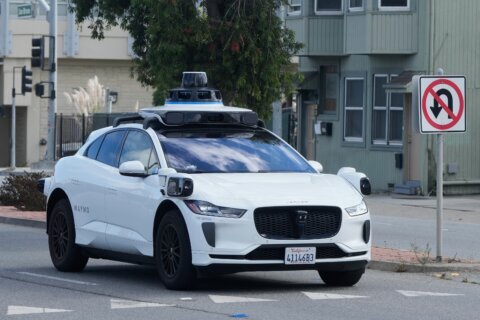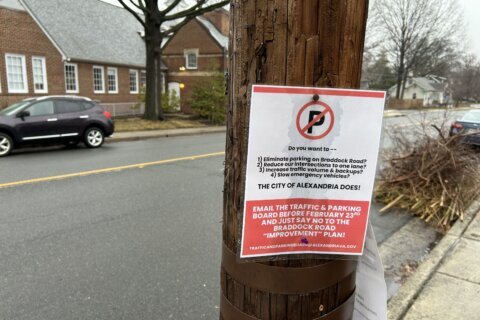WASHINGTON — Two Virginia state lawmakers want to put limits on how long police can hold data collected from license plate readers since that data — your personal information — can be held indefinitely in the state.
The plate readers not only grab your license plate number, they record the time, date and your location.
“This would be cameras that are mounted on the back of police cruisers that come in and scan license plates and store the data and store it indefinitely,” says Virginia State Senator Chap Petersen (D-34th District) from Fairfax.
Petersen and his colleague in the House, Del. Rich Anderson (R-51st District) from Prince William County, are introducing newly revised legislation that would regulate license plate readers. Currently, there are no rules in Virginia to govern the scanners.
The legislators want your personal information to be purged by police after seven days. They also want to limit excessive amounts of license plate numbers from being collected in the first place. A large number of license plate numbers are swept up by license plate readers, but privacy concerns from citizens have prompted the lawmakers to act.
“Because there are certain needs such as trying to ID stolen vehicles where [license plate readers] are very useful,” Petersen says. “But my concern was with just storing the data and holding it, again, when there’s no search warrant, no subpoena, [and] no public necessity for grabbing this information.”
He says he feels this new legislation is the right balance between public safety in Virginia and personal liberty. “Last year I introduced a bill it was basically a ‘no’ use of [license plate readers]. It was a blanket ban.”
Sen. Petersen and Del. Anderson are introducing bills in the new General Assembly session. The two had tabled similar bills last year in order to study this issue further, which included working with law enforcement.
“I have the highest trust and respect for Virginia’s law enforcement professionals who ensure our safety,” Anderson in a press release, “but the overwhelming sentiment of our citizens is that we restrict the collection … and retention of data that many feel violates our centuries-old principles of personal privacy.”
Follow @WTOP on Twitter and on Facebook.







